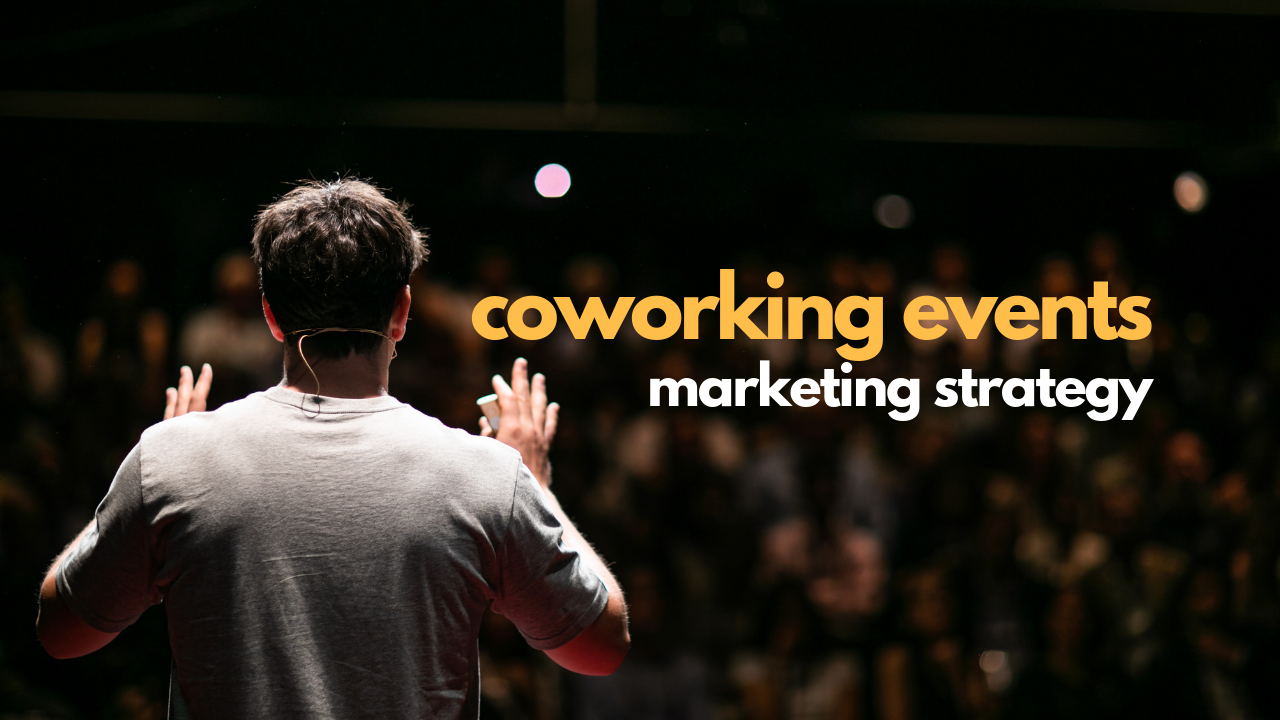- According to industry experts, the three keys to utilizing events as a marketing tool are programming, promotion, and patience.
- Events won’t bring in new members overnight, but they do help to build community and support your long-term marketing strategy.
- Industry experts Jerome Chang, James Williams and Cassi Niekamp share best practice on the different events you can host in your space.
Venture capitalist panel: yes. Launch party: no. Pop up farmer’s market? Maybe.
When the topic of events at coworking spaces come up, thoughts generally turn to member-focused activities such as potluck lunches, bagel breakfasts, happy hours and lunch and learns.
While onsite events are a terrific tool to build community and connections with current members, they can also serve an important and powerful role as part of a center’s marketing strategy.
Seminars, workshops and networking events introduce a space’s physical offerings, amenities and community to a new population, boosting exposure and awareness. However, it’s important to set realistic expectations of what outside-oriented events can accomplish.
Don’t expect them to generate huge membership gains, at least in the short-term, advise veteran coworking owners and operators. Instead, it’s best to view events as an opportunity to build goodwill, community relations, SEO and brand awareness as well as generate content and social media activity.
“People think if you produce events, you’ll get a meaningful number of people to convert to members. That never works,” explains Jerome Chang, founder of BLANKSPACES.
“It’s a long game, like social media, messaging and branding,” said the veteran operator who currently owns four Los Angeles-area locations with two more on the way. Operating since 2008, BLANKSPACES has sworn off launch parties (“People come just for the food” quips Chang), favoring more audience-focused affairs.
Yet that’s not to say they can pay dividends in other ways that support marketing efforts.
“If it’s a business-oriented organization like the Columbia Venture Community, we may get one virtual office out of it,” said James Williams, an alumnus of the New York City business school who frequently hosts events for its related clubs at his space, Coalition.
“But that’s not the reason we do it. It’s just to network and get higher mindshare. We think it pays off in marketing which may not have a direct traceable effect on revenue but could and probably does.” Williams also achieves added mileage before, during and after the event by leveraging the event as content for social media, blog posts, newsletters and websites, and SEO boosts, as well as community goodwill.
Events can also serve an important role in the sales process.
Inviting a prospect to an event can be the second step in converting members who have done an initial space tour but do not close on the spot, according to Cassi Niekamp of Cultivate Advisors, a small business consulting firm.
“Events are actually underutilized in the sales process,” Niekamp said, adding that inviting ‘warm leads’ to events is a way of keeping a prospect in the funnel. “They also give an operator a position of strength to ensure it’s a good community fit,” she noted.
Additionally, educationally focused events can be much more comfortable and approachable for guests than pure networking events where they might not know anyone. “It’s a non-threatening approach,” explained Niekamp, who presented a workshop on the topic at the annual GWA and NAIOP conference this fall. “But you can often generate a lot of conversation around a shared experience such as a lunch and learn, by having a breakout group. A shared experience draws the commonality out,” notes Niekamp.
The Three Types of Events
Most spaces presented one of three event types at one point or another, depending on their particular goals. Each has particular benefits and drawbacks.
1. Private events. Many coworking spaces already do a substantial business renting out their meeting rooms and event spaces for private events, just like a hotel. In these cases, the event host is responsible for all expenses and coordination, save for the space. Besides standard company meeting and club and association events, coworking spaces have also been rented out for:
-
- Seminars, classes and workshops
- Wedding receptions, birthday parties and family reunions
- Charity fundraisers such as casino night and auctions
- College orientation
Recurring classes and events such as church dinners and test prep classes can provide a steady revenue stream with no incremental efforts.
2. Events presented by the space. This format requires the space operator to be responsible for all aspects of the event: programming, promotion, list development and invitations, food and beverage, and all logistics, making it the most expensive, highest risk way to go. Charging an admission fee can offset some of the expense, as well as creating a greater sense of value, improving attendance.
Examples of some events in this genre would be seminars and workshops presented by resources such as Google, SCORE, Fiverr, or branding and small business experts brought in by the space.
3. Event presented in partnership. This hybrid allows the space operator to share expenses and labor at predetermined levels. Operators can choose how to price the space: standard rate, discounted or sponsored (free).
Partnering with the event organizer can provide some added marketing muscle, says Williams.
The presenting parties negotiate how to divide expenses and responsibilities including food and beverage, speaker fees, audience promotion, event coordination and onsite labor.
Check back tomorrow for tips on how coworking spaces can get the most out of events held onsite.



 Dr. Gleb Tsipursky – The Office Whisperer
Dr. Gleb Tsipursky – The Office Whisperer Nirit Cohen – WorkFutures
Nirit Cohen – WorkFutures Angela Howard – Culture Expert
Angela Howard – Culture Expert Drew Jones – Design & Innovation
Drew Jones – Design & Innovation Jonathan Price – CRE & Flex Expert
Jonathan Price – CRE & Flex Expert












